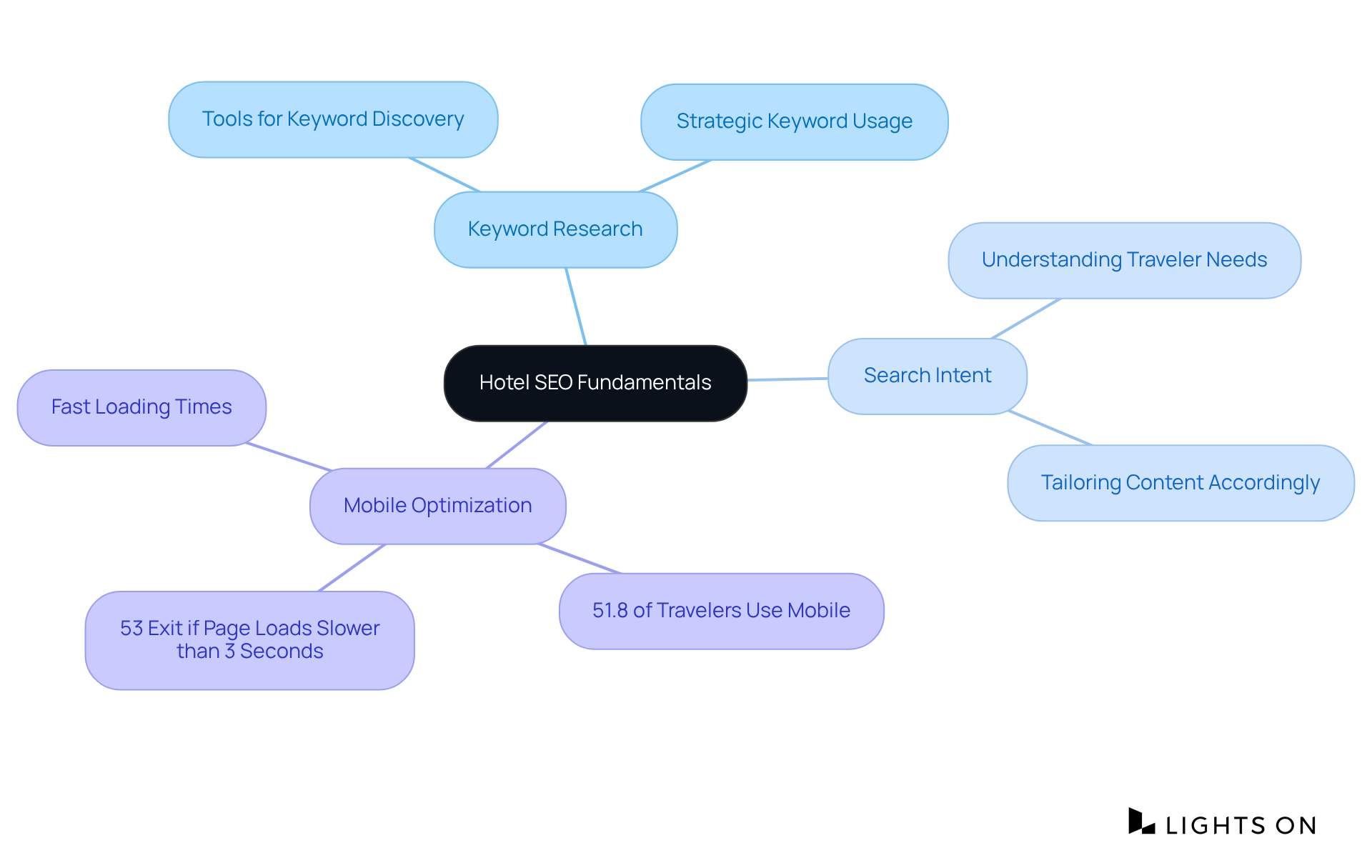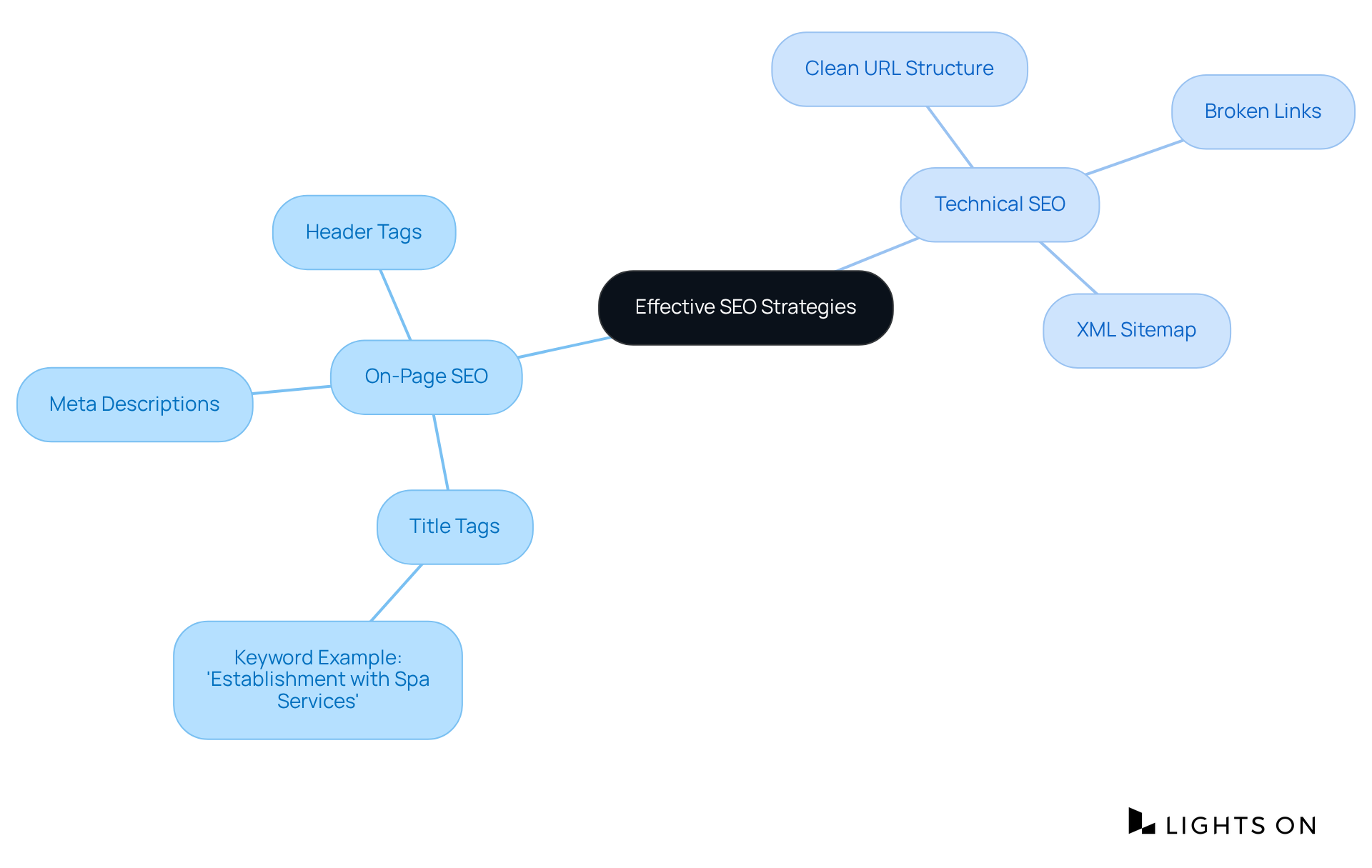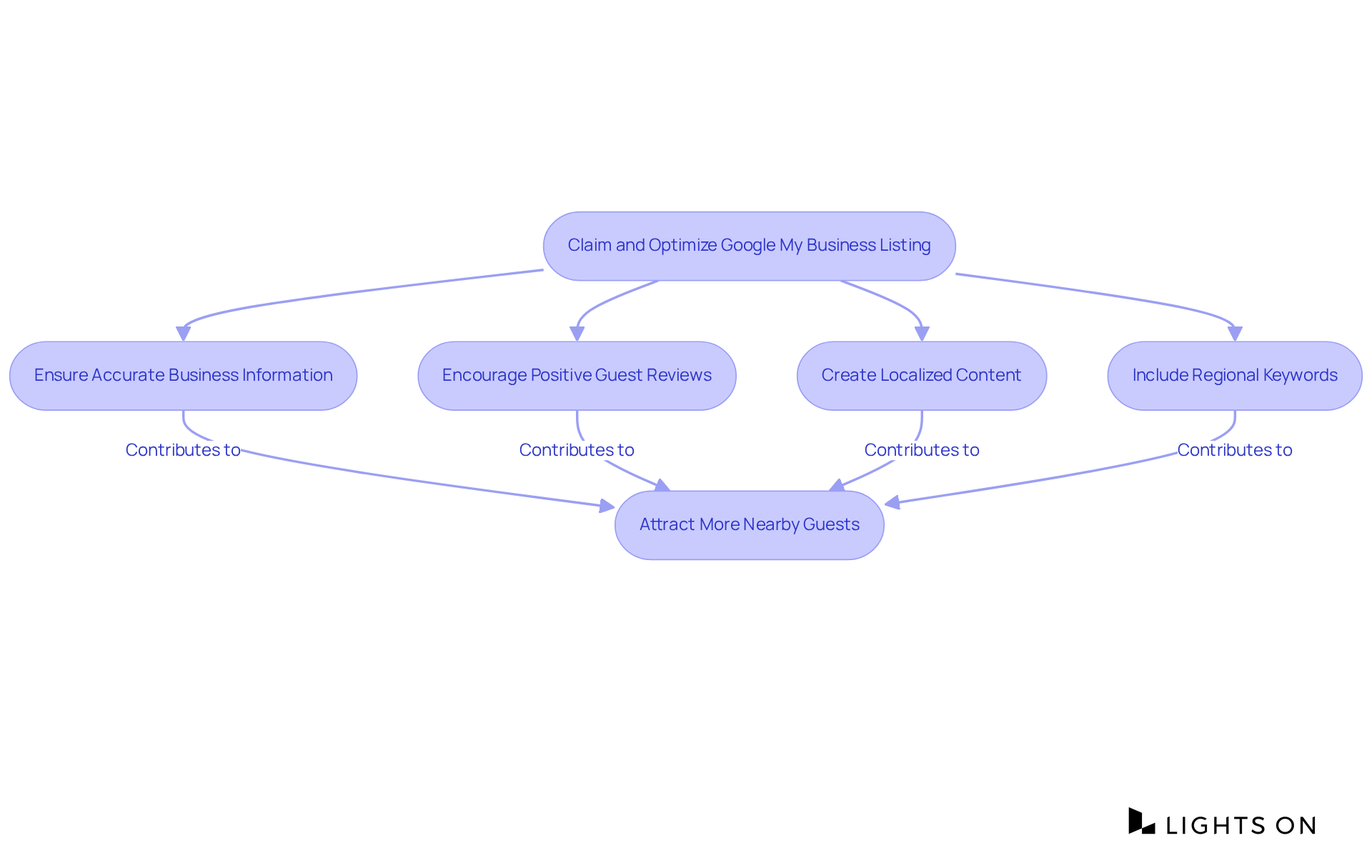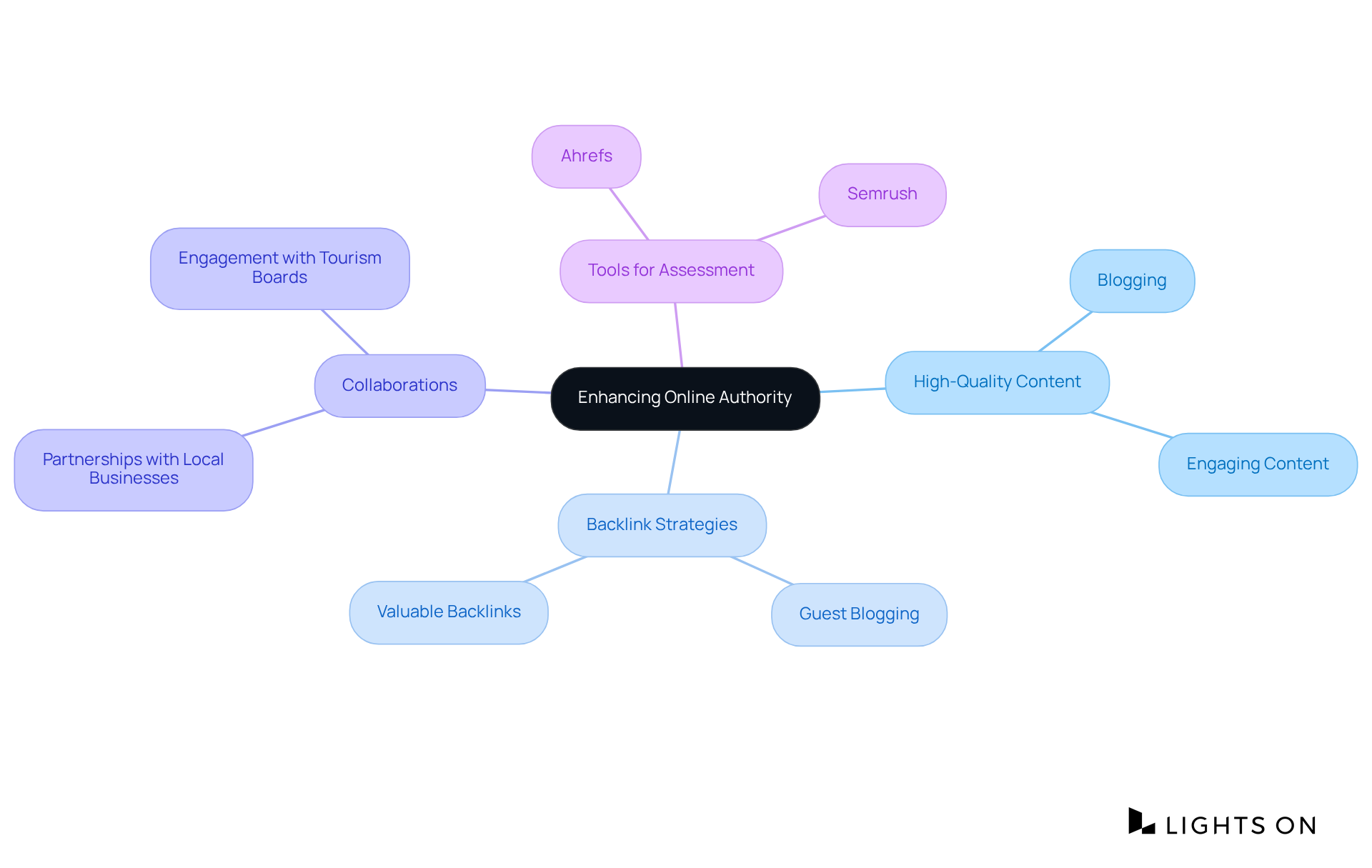The article centers on mastering hotel search engine optimization (SEO) as a pivotal strategy to elevate bookings by enhancing visibility and attracting potential guests. It underscores the critical need for:
Collectively, these elements contribute significantly to improved booking rates and increased profit margins for hotels. By implementing these strategies, hotel owners can position themselves advantageously in a competitive market, ultimately driving greater success.
In the competitive landscape of the hospitality industry, hotel search engine optimization is a game-changer, where visibility can make or break a booking. Mastering the intricacies of SEO allows hotels to significantly enhance their online presence, attract more guests, and ultimately increase direct bookings.
However, as the digital landscape evolves, the challenge remains: how can hotels effectively navigate the complexities of SEO to not only stand out but also convert interest into reservations? This question invites hotel and restaurant owners to reflect on their current strategies and consider the transformative potential of effective SEO practices.
Hotel search engine optimization plays a crucial role in enhancing your site's visibility in search engine results, which facilitates potential guests' discovery of your property. Key components encompass:
Begin by identifying keywords that travelers frequently use when searching for accommodations in your area; tools like Google Keyword Planner can aid in uncovering relevant terms.
With 51.8% of travelers expected to reserve accommodations via by 2025, ensuring your platform is mobile-friendly is imperative. A well-structured site that loads swiftly—ideally within three seconds—can significantly diminish abandonment rates, as 53% of mobile visitors will exit if a page takes longer to load. This seamless user experience not only retains visitors but also encourages them to finalize their bookings.
Successful case studies underscore the impact of effective SEO strategies. For instance, accommodations that optimized their online platforms for mobile experienced a notable surge in direct reservations, with some reporting a 15-20% increase following the launch of targeted 'Book Direct' initiatives. Moreover, direct bookings can yield 9-20% higher profit margins than OTA bookings, highlighting the financial advantages of optimizing for direct reservations. By focusing on mobile optimization and user experience, accommodations can improve their hotel search engine optimization, which enhances visibility and attracts more potential guests, ultimately leading to increased occupancy rates.

To effectively enhance your accommodation site with , prioritize on-page elements such as title tags, meta descriptions, and header tags. Each page must be tailored to specific keywords that accurately reflect your offerings. For instance, if your accommodation features a spa, incorporate phrases like 'establishment with spa services' within your content.
Furthermore, technical SEO is equally critical; maintain a clean URL structure, eliminate broken links, and ensure that an XML sitemap is submitted to search engines. Regular audits using tools like Google Search Console are essential for identifying and resolving technical issues that could impede your SEO performance.
Statistics indicate that hotel search engine optimization, particularly through well-optimized title tags and meta descriptions, can significantly enhance website traffic, making these elements vital for attracting potential guests. Success stories from the hospitality industry demonstrate that hotels implementing robust hotel search engine optimization and technical SEO practices have witnessed marked improvements in their online visibility and booking rates.

To effectively enhance your regional SEO, claiming and optimizing your Google My Business (GBP) listing is crucial. Begin by ensuring that your business information—address, phone number, and website—is accurate and up-to-date. This foundational step is essential, as Google prioritizes accurate listings in nearby search results.
Motivating satisfied guests to share can significantly improve your hotel search engine optimization; reviews not only bolster your trustworthiness but also influence the decisions of potential guests. As SEO expert Justin Mosebach observes, "His comprehensive understanding and strategic method to regional SEO have greatly enhanced our online visibility."
Furthermore, creating localized content that highlights attractions and events in your area can significantly improve your hotel search engine optimization and attract guests seeking nearby accommodations. Including regional keywords in your website content and blog articles is essential for hotel search engine optimization, as it enhances your visibility in local search results and facilitates easier discovery for travelers.
Successful examples of accommodations that have effectively implemented hotel search engine optimization illustrate that a well-maintained profile can lead to increased direct bookings and an enhanced online presence. For instance, Lights On manages over 50 businesses totaling $347 million in annual sales, showcasing the tangible benefits of effective GBP optimization.
By concentrating on these strategies, establishments can position themselves advantageously in a competitive market, ultimately attracting more visitors.

To establish a strong online authority, accommodations must prioritize the creation of high-quality, informative content that resonates with their target audience. A blog that highlights regional attractions, travel advice, and accommodation updates not only captivates potential guests but also motivates other platforms to link back to your content, thereby enhancing your authority. In fact, over 70% of consumers read reviews before making a purchase decision, underscoring the importance of engaging content.
Collaborating with nearby businesses and tourism boards can yield valuable backlinks from reputable sources, further enhancing your credibility in the digital landscape. Furthermore, participating in guest blogging on pertinent travel sites serves as an effective strategy to boost visibility and attract visitors to your establishment's website.
As Frank DePino notes, "In today’s competitive hospitality market, hotel search engine optimization is essential for hotels looking to improve visibility and attract direct bookings."
Utilizing tools like Ahrefs or Semrush can help before pursuing backlinks, ensuring a strategic approach to link building.

Mastering hotel search engine optimization is essential for enhancing online visibility and driving direct bookings. By concentrating on fundamental components such as:
Accommodations can significantly elevate their chances of being discovered by potential guests. Furthermore, the integration of local SEO practices and the creation of high-quality content solidifies a hotel's online presence, facilitating easier access for travelers seeking to choose their services.
Throughout this article, the key arguments underscore the importance of a well-optimized website that caters to both user experience and search engine requirements. From leveraging mobile-friendly designs to implementing robust local SEO strategies, the insights provided illustrate the tangible benefits that accompany a strategic approach to hotel SEO. Successful case studies reinforce that hotels adopting these best practices experience increased visibility, higher occupancy rates, and improved profit margins.
In a competitive hospitality market, the significance of effective SEO cannot be overstated. Establishments are encouraged to embrace these strategies not only to enhance their online authority but also to foster a deeper connection with potential guests. By prioritizing hotel search engine optimization, accommodations can position themselves for success, ultimately leading to greater visibility and increased bookings in the ever-evolving landscape of travel and tourism.
What is hotel search engine optimization (SEO)?
Hotel SEO is the process of enhancing a hotel's visibility in search engine results, making it easier for potential guests to discover the property.
What are the key components of hotel SEO?
The key components of hotel SEO include thorough keyword research, an understanding of search intent, and a strong emphasis on mobile optimization.
How can I conduct keyword research for hotel SEO?
You can conduct keyword research by identifying terms that travelers frequently use when searching for accommodations in your area, utilizing tools like Google Keyword Planner to uncover relevant keywords.
Why is mobile optimization important for hotel websites?
Mobile optimization is crucial because 51.8% of travelers are expected to reserve accommodations via mobile devices by 2025. A mobile-friendly site improves user experience and retention.
What is the ideal loading time for a hotel website?
The ideal loading time for a hotel website is within three seconds, as 53% of mobile visitors will exit if a page takes longer to load.
How does user experience impact hotel bookings?
A seamless user experience retains visitors and encourages them to finalize their bookings, ultimately leading to increased direct reservations and occupancy rates.
What financial benefits can come from optimizing for direct bookings?
Direct bookings can yield 9-20% higher profit margins than online travel agency (OTA) bookings, highlighting the financial advantages of optimizing for direct reservations.
Are there any success stories related to hotel SEO?
Yes, successful case studies show that accommodations that optimized their online platforms for mobile experienced a 15-20% increase in direct reservations following targeted 'Book Direct' initiatives.
Transform your group booking strategies with Lights On and watch your occupancy soar.